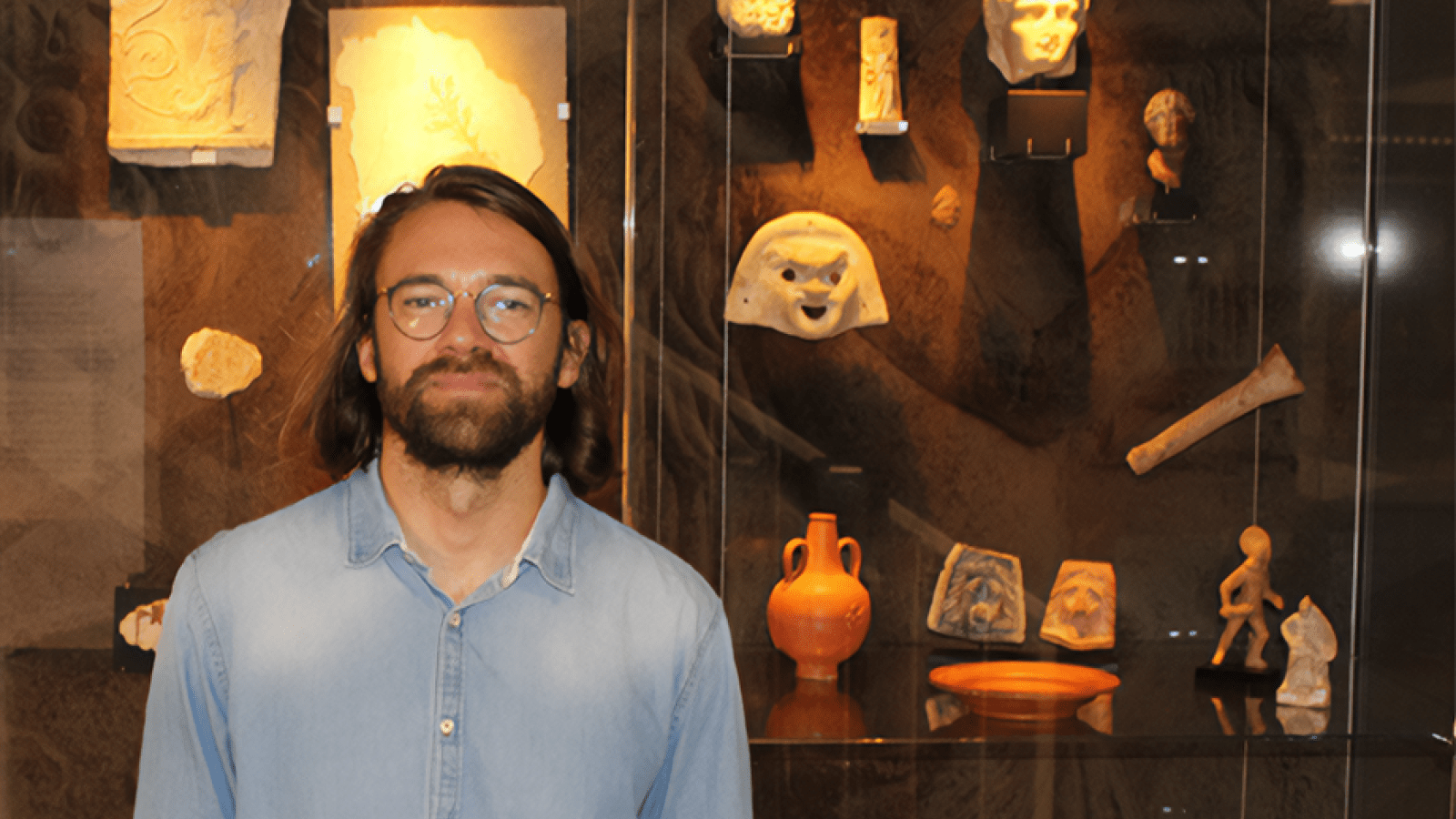Welcome Dr. Tom Geue to the Centre for Classical Studies

Dr. Geue is a man on a mission. Ready to redefine the role of classical studies in the humanities.
"My ambition is to make Classics a sort of exporter discipline. At the moment, we tend to take theories and methods from other fields. I’d like other fields to want to steal something from us.”
His focus on slavery and Latin literature challenges traditional views of authorship and he wants everyone to know that undertaking a degree in Classics can be applied to a huge plethora of fields - some more outside of the box than one might think.
Dr. Geue brings a contagious energy to the classroom. Perhaps this attitude stems from a favourite high-school teacher of his, the late Dr. Emily Matters, whom he recalls fondly as “an incredibly energetic and completely bonkers teacher, who would conjugate verbs in song.”
Dr Geue completed his honours degree at the University of Sydney, before moving to the UK to earn his MPhil (2009) and PhD (2013) from King's College, Cambridge. After a few teaching roles across England and Scotland, where he recently won a Philip Leverhulme Prize (in 2021), and after 14 years away from our shores, he has returned to take up a post in the Centre for Classical Studies at the Australian National University's College of Arts and Social Sciences.
"I felt like it was time to come home, to help build something in Australia." He says.
One of his favourite topics to teach is a simple poem called 'Moretum,' which describes the morning process of two peasants making bread, picking herbs from the garden, and making pesto.
"I like it because it is one of the only moments in Latin literature where we catch a good glimpse of poor rural folk… not just the urban elites” comments Dr. Geue.
Another important teaching text for Dr. Geue is the fables of Phaedrus, whose work offers insight into the power dynamics between social classes within an unjust society. "Phaedrus provides a view on a social class of enslaved and formerly enslaved people that was once considered invisible in antiquity," Dr. Geue explains. "Nowadays, we don't accept that as an excuse. We just have to work a little bit harder to get an insight into this perspective, but it's definitely there if you look."
For Dr. Geue, teaching is not just about imparting knowledge; it's about opening up doors for his students to walk through, leading them down various paths that may not have occurred to them before. Whether that be working in museums or heritage, or entirely different fields that require creative and critical thinking, like tech. Dr. Geue wants his students to chart their own paths in life and create their own unique legacies. As he puts it, he doesn’t want to produce "carbon copies" of himself, but to empower his students to become the best versions of themselves.
When he’s not teaching, Dr. Geue is researching and writing his book – ‘Major Corrections: The Materialist Philology of Sebastiano Timpanaro.’ This book makes the case that classical philology has something to offer Marxism – two fields you wouldn’t imagine have much to do with each other.
There are thoughts of all sorts swirling around Dr. Geue’s creative mind, with another project on the horizon that will discuss how the presence of enslaved labour changes the way we read Latin literature.
By thinking outside the box and looking beyond the traditional canon, Dr. Geue is teaching a new generation of students that the classics are not just a relic of the past, but a valuable tool for understanding the present and shaping the future.